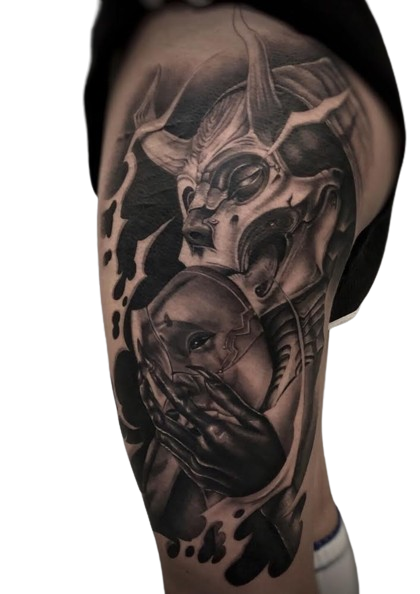
The tattoo industry continues to gain popularity, as many individuals choose to express their identity through body art. As more tattoo studios open, the significance of adhering to vital safety and hygiene standards increases. The primary goal of these standards is to protect clients from infections and complications that may arise from improper tattooing practices. Compliance with these regulations goes beyond a legal obligation; it is a fundamental aspect of professional conduct that upholds the integrity of the tattoo profession while fostering trust between artists and clients. In locations such as tattoo little italy, these standards are particularly emphasized to ensure a safe environment for all tattoo enthusiasts.
One of the most critical aspects of maintaining hygiene in tattoo studios involves hand hygiene. Before engaging in any tattooing procedure, artists must wash their hands thoroughly. This step is essential in minimizing the transfer of pathogens, including bacteria and viruses, that could lead to infections. According to operational health requirements, handwashing should be performed with soap and water for at least 20 seconds, ensuring that all areas of the hands are cleaned effectively. Additionally, the area of the skin where the tattoo will be applied must be disinfected. This process eliminates any bacteria present on the skin's surface, significantly reducing the risk of infection during the tattooing process.
Glove Usage
In addition to hand hygiene, wearing gloves during the tattooing procedure serves as an essential safety measure. Gloves act as a barrier between the tattoo artist and the client, significantly reducing the risk of cross-contamination. It is crucial for tattoo artists to wear disposable gloves throughout the entire procedure, as they protect both parties from exposure to bodily fluids and other potential contaminants.
Moreover, it is vital that gloves are inspected before use to ensure they are intact. If gloves become torn or compromised during the procedure, they must be replaced immediately. This attention to detail reflects a commitment to upholding high hygiene standards while prioritizing client safety. Proper disposal of gloves is also essential; they should be discarded in a designated biohazard waste container to prevent any potential health risks associated with improper waste management.
The practice of wearing gloves is a standard that all tattoo artists must adhere to. By following these glove usage guidelines, tattoo studios can significantly mitigate the risk of transmitting infections, ensuring a safer environment for clients. Furthermore, educating clients about these practices enhances their confidence in the tattooing process and fosters a trusting relationship between artists and their clientele. This level of professionalism is vital for the reputation of the tattoo industry as a whole.
Equipment Sterilization
Another essential component of safety and hygiene in tattoo studios is the sterilization of all equipment utilized during the tattooing process. All needles, inks, and tools must undergo proper sterilization procedures to prevent the transmission of infectious diseases, such as Hepatitis B, Hepatitis C, and HIV. The significance of this practice cannot be overstated, as unsterilized equipment poses a severe risk not only to clients but also to tattoo artists themselves.
Tattoo studios are required to follow stringent guidelines regarding sterilization methods. Autoclaves, which are devices that use steam under pressure to sterilize equipment, are considered the gold standard in the tattoo industry. These machines effectively eliminate bacteria, viruses, and spores, ensuring that all tools are safe for use. Moreover, tattoo artists should receive training on properly using these sterilization devices and maintaining them in good working condition.
In addition to sterilizing individual tools, tattoo studios must prioritize maintaining a clean and hygienic environment. This includes regularly cleaning and disinfecting surfaces within the studio, such as countertops, chairs, and tattoo stations. A clean studio not only contributes to the safety of the tattooing process but also creates a welcoming atmosphere for clients. By adhering to these sterilization and cleanliness standards, tattoo studios can build a reputation for safety and professionalism, which is essential for attracting and retaining clients in a competitive market.
Education and Training
In my view, the tattoo industry must emphasize education and training concerning safety and hygiene practices. Regular workshops and refresher courses for tattoo artists can help reinforce these essential standards and keep them informed about best practices in the field. Education plays a pivotal role in ensuring that artists understand the importance of hygiene and the potential risks associated with non-compliance. This is particularly relevant in areas such as tattoo little italy, where local regulations may vary, making it crucial for artists to remain updated.
Furthermore, tattoo studios should consider implementing regular health inspections to ensure adherence to safety regulations. These inspections can serve as an additional layer of accountability and encourage studios to maintain high hygiene standards. An open dialogue between artists and clients regarding hygiene practices fosters transparency and trust, allowing clients to feel more comfortable and secure during their tattooing experience.
Ultimately, it is essential for the tattoo industry to view hygiene standards not merely as regulations but as a commitment to providing a safe and enjoyable experience for all clients. By prioritizing education, regular inspections, and open communication, tattoo studios can contribute to a culture of safety and professionalism that benefits both artists and clients. This proactive approach will help enhance the reputation of the tattoo industry as a whole, ensuring that it remains a respected and trusted form of self-expression.









